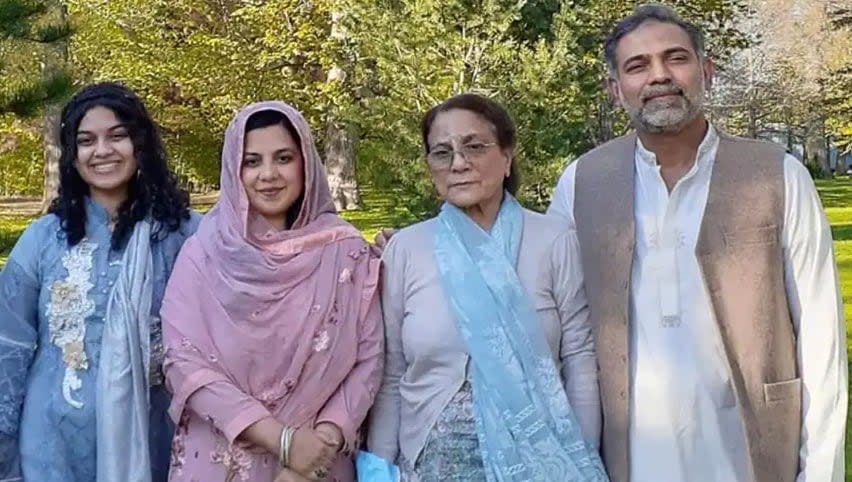Defence rests its case in murder-terrorism trial of man accused of killing Muslim family in London, Ont.

After nine weeks of proceedings, the murder and terrorism trial of a man accused of purposely driving into a Muslim family in London, Ont., in 2021 has entered its last stage.
On Monday, forensic psychiatrist Dr. Julian Gojer, the final defence witness in the Nathaniel Veltman case, finished his testimony in Ontario Superior Court in Windsor. Next, lawyers will wrangle over what Justice Renee Pomerance will tell the jury in her explanation of the law.
"Now that the evidence is complete, there's a lot of work that me and the lawyers now have to turn our minds to," Pomerance told jurors.
She also told them they will be brought either this Friday or Nov. 14 (Nov. 13 is a holiday for the court as Remembrance Day is a Saturday) to begin listening to closing arguments and the charge to jurors — where the judge summarizes the case and explains the law so they can apply it to the facts of the case.
Evidence began being presented in court on Sept. 11.
Veltman, 22, has pleaded not guilty to four counts of first-degree murder and one count of attempted murder. The case is further complicated by additional terrorism charges, which will be debated by a jury for the first time in Canada as part of a homicide trial.
The defence has conceded the accused struck the Afzaal family in northwest London on June 6, 2021, with his pickup truck, killing four people and seriously injuring a nine-year-old boy. According to the prosecution, the accused planned the attack, was motivated by far-right ideology and wanted to a send a message or warning to other Muslims.
The Afzaals, a Pakistani-Canadian family, were out for an evening walk in suburban London on the evening of the attack. High school student Yumnah Afzaal, 15, her parents — Madiha Salman, 44, an engineer, and Salman Afzaal, 46, a physiotherapist — were killed, as was family matriarch Talat Afzaal, 74, a teacher and artist. A nine-year-old boy survived.

Yumnah Afzaal, 15, Madiha Salman, 44, Talat Afzaal, 74, and Salman Afzaal, 46, left to right, were out for an evening walk on June 6, 2021, when they were attacked by a pickup truck and killed. (Submitted by the Afzaal family)
In a surprise move, the accused testified in his own defence at the trial, saying he had an unhappy childhood in a strict Christian home. He also detailed his mental illnesses and obsessions that he said drove him down a far-right internet "rabbit hole" that led to watching up to 12 hours of anti-Muslim and anti-immigrant content online.
Mental disorders, mushrooms disputed
When he surrendered, the accused told police he went out with the intention of killing Muslims. He was wearing body armour and a military-style helmet, as well a home-made spray-painted Crusader shirt. In his apartment, police found a document called "A White Awakening," as well as videos of other white nationalist mass killings.
The accused said he made up a story for police after his arrest as a way to justify the killings to himself and a detective. Gojer testified the accused suffered from a litany of mental disorders and was coming off magic mushrooms he had taken 40 hours before the attack that had made him unable to resist his urges to kill.
Prosecutors cast doubt on the autism spectrum disorder, obsessive compulsive disorder, depression and complex trauma that Gojer diagnosed the accused with, saying his symptoms did not match those outlined in the psychiatric guidebook called DSM-V.
They also cast doubt on the theory that magic mushrooms played a role in the killings, because Gojer's hypothesis about the withdrawal affects of mushrooms are based on the science of withdrawal from a different class of drugs — selective serotonin reuptake inhibitors (SSRIs) — that also act on a chemical in the brain.


